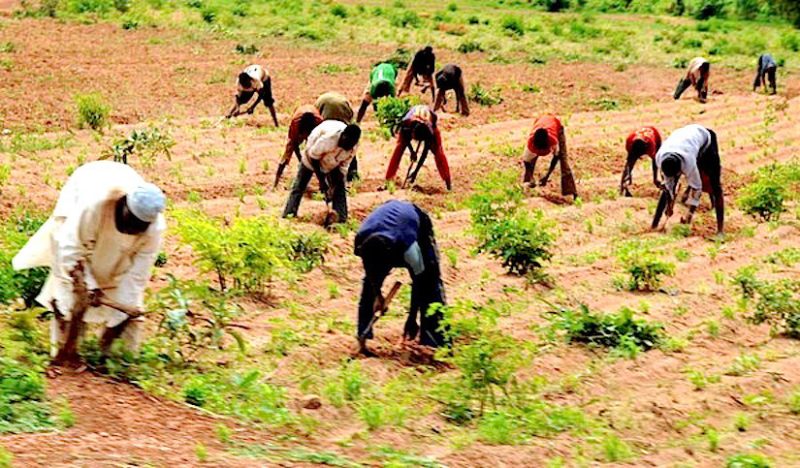An organic farmer, Mr Uche Ikenga, has raised alarm over the delay in the coming of the 2020 rainy season in some parts of the country, saying it will negatively affect the year’s food production.

Ikenga, who said this in an on Friday, February 19, 2021 in Lagos, however, blamed the present climate change realities for the delayed rainfall in the country.
The farmer noted that the variances in rainfall between the Southern and the Northern regions of the country would affect crop harvests and food security during the year.
“With the delayed rains in some part of the country it means we cannot massively harvest crops this year because some farmers may not begin planting until June.
“This delay in turn will affect food security in the country and it is an indication that climate change realities are beginning to get worse.
“The delay in rainfall last year affected the planting season as planting of major crops had to be delayed also.
“Farmers like to experience turnover of their crops within the year, for example, planting corn two or three times in a year, but delayed rainfall will make this impossible.
“Farmers in the Southwest can start farming because the soil has been softened by the few rains it has experienced.
“However farmers in the Northern region of the country cannot start planting yet as they are yet to witness any rainfall this year,” the farmer said.
Ikenga also appealed to government at all levels to work closely with local farmers to forestall food insecurity in the country.
In addition, he said a shift from the nation’s culture of rain-fed agriculture system to irrigation system could help boost crop harvest but for the cost intensiveness.
“Farmers can use irrigation system to help their farming activities but this is usually cost intensive that they may not be able to sustain in the long run.
“I am presently doing dry season farming and it has not been so easy. The dry ground in the North consumes the water fast. The water level is very low.
“Climate change has really affected planting season this year. We need funds, innovation and government’s intervention to help farmers.
“We want the government to work more closely with farmers if we are really serious about food security,” Ikenga noted.
By Mercy Omoike
